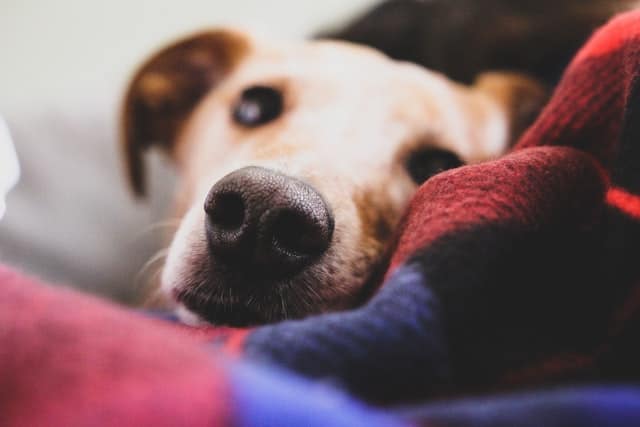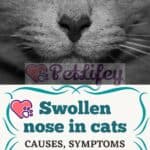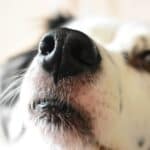Dry noses in dogs can be a sign of poor health. Here are what pathologies it might indicate.

On some occasions, pet conditions can start with physical changes – dry noses in dogs are one example. For this reason, it is important to observe your pet carefully and consult a veterinarian in case of doubts or anomalies. In this article we will talk about dry noses in dogs, with all the causes and treatment for this phenomenon.
The nose is one of the body parts most analyzed by the owners. Normally, it is humid and that means that the dog is fine, that he is healthy . However, this rule is not always valid, as its hydration status changes frequently because it is closely related to weather conditions.
When a dog’s nose is dry, bleeding may also occur, so it is advisable to go to the specialist to understand what it is. Read on for dry noses in dogs: causes and treatment.
Harmless causes of dry nose
Excess dryness and the subsequent appearance of cracks in the nose of dogs can be due to multiple factors. Therefore, before worrying it is interesting to know the most common.
Common causes include your dog licking his nose less . Although most owners don’t know this, one of the main reasons dogs get wet noses is because of their habit of licking it . So in those times when there has been less opportunity to do so, such as with a long nap, this area will be drier. Direct sunlight or prolonged exposure to a heat source can contribute to dehydration of the nose.
When the dry nose is due to non-pathological factors, it is best to let it return to its natural state on its own. Usually, the dog will tend to lick his nose again when he feels dry , so it will be sufficient to bathe him with water every day.
Cleaning the nose can be annoying for your dog. Therefore, it is best to use a damp sponge or cloth to moisten the area gently. Soaps or talc which can irritate and worsen symptoms should be avoided.
In some cases, petroleum jelly or special ointments can help reverse the situation more quickly, but you should always seek your veterinarian’s advice.
Pathologies contributing to nasal dryness
In addition to the above causes, there are diseases whose symptoms include dry nose . Less serious are allergies to pollen, mold or any chemical or food product. In these cases, dryness may be accompanied by itching and redness, which will need to be relieved with antihistamines or steroids in severe cases.
The most harmful pathologies that cause dog nasal dryness are those of the autoimmune type, such as lupus erythematosus . Blood, urine, and a nose biopsy are required for its diagnosis. In this situation, the vet will prescribe drugs such as prednisone.
In general, serious illness can be suspected if there is bleeding , dry discharge, swelling or excessive thickening of the nose.
At the same time, and beyond the pet’s physical characteristics, owners should examine physiological or behavioral symptoms. The presence of vomiting, diarrhea , lethargy, lack of appetite or excessive scratching are among the most common.
To understand if you are in the presence of a dry nose, or any change in your pet’s appearance, a complete observation of the animal must prevail. Therefore, the information provided by the owners to the vet is essential to determine the most appropriate tests for the diagnosis.






